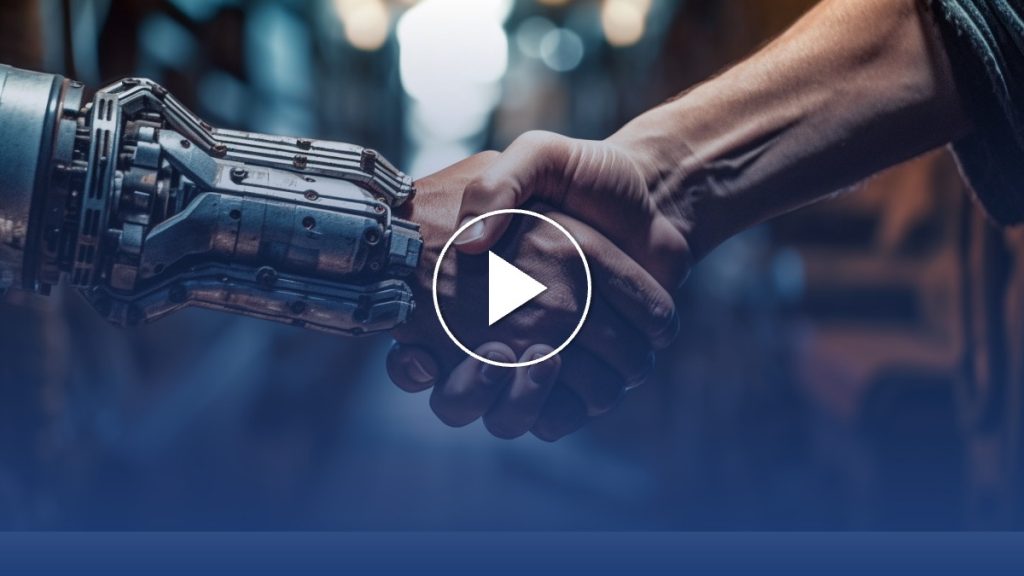In a recent dialogue at Hannover Messe, IIoT World’s Greg Orof introduced us to Dr. Andreas Argubi-Wollesen, R&D Biometric Analysis, exoIQ, and Kai Wolff , Sales Manager, exoIQ, who are pioneering the industrial use of exoskeleton technology. Their product, exoIQ’s S700 shoulder exoskeleton, is engineered to alleviate the physical burden on workers performing tasks that require arms to be raised for prolonged periods. This is not just about aiding with heavy lifting; it’s about enhancing endurance and reducing the risk of musculoskeletal disorders, which are common in jobs demanding repetitive or sustained arm elevation.
The exoskeleton’s design focuses on providing support to the shoulder girdle, neck, and shoulder muscles, crucial for activities involving assembly, tool handling, and overhead work. With the capacity to provide up to 10 kg of support per arm, the device is a testament to how assistive technology can merge with human skill to create a safer and more productive workplace.
What makes this exoskeleton stand out is its intelligent support system that operates on a pneumatic mechanism. This allows for an adaptive support level that matches the user’s immediate needs, a feature that reflects the growing trend of personalized workplace technology. Furthermore, the companion app serves a dual function: it facilitates system updates and provides ergonomic analytics, a unique feature that underscores the commitment to continuous improvement and user-centric design.
At a price point of 3,500 Euros, the value proposition of the exoskeleton is grounded in its potential to reduce workplace injuries and the associated economic costs. As industries worldwide continue to seek solutions that marry health and efficiency, products like this exoskeleton offer a glimpse into a future where technology and human labor enhance each other in unprecedented ways.
The interview not only highlights the functional capabilities of the exoIQ’s S700 shoulder exoskeleton but also reflects a broader movement within the industrial sector towards embracing IoT and smart technologies. As companies prepare for the Hannover Messe, they look forward to demonstrations that don’t just showcase a product but offer a vision of the future of work – one where innovation is as much about supporting human capability as it is about advancing technological frontiers.
This blog post was created based on the script of the video with the assistance of https://chat.openai.com/.
